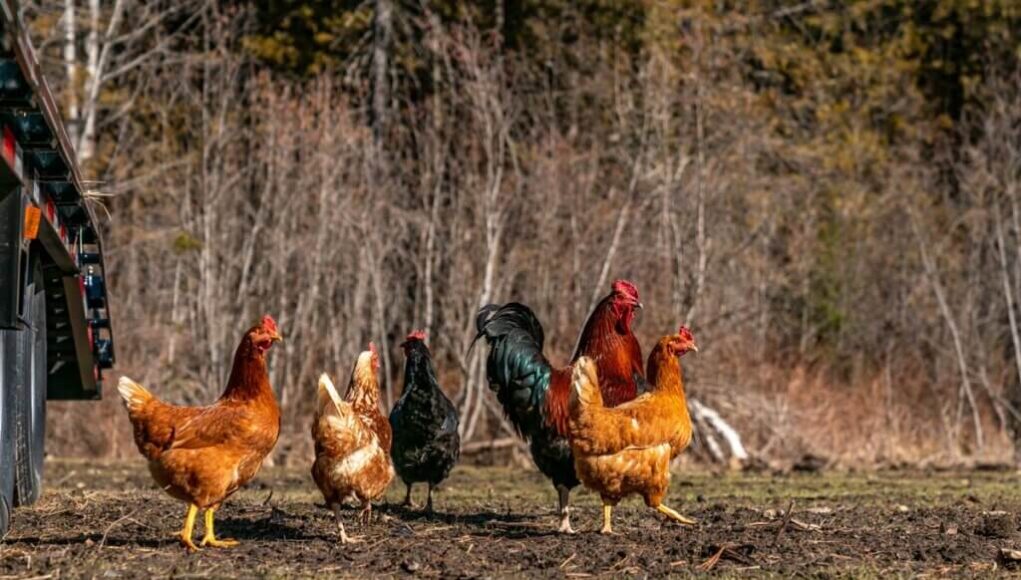When raising chickens, one common concern is the health of their crops. The crop, a part of the digestive system, can occasionally become impacted. Understanding how to treat impacted crop naturally is crucial for maintaining the well-being of your flock. This article aims to provide comprehensive insights into natural treatment methods for impacted crop in chickens.

Understanding Impacted Crop
An impacted crop occurs when the crop becomes full and cannot effectively move food into the digestive tract. This condition can lead to serious health issues if not treated promptly. Chickens with an impacted crop may appear lethargic, have a loss of appetite, or display discomfort around the crop area.
Signs of an Impacted Crop
Recognizing the signs of an impacted crop is the first step in providing care. Symptoms include a firm or hard crop, foul breath, weight loss, and reduced activity levels. Regularly inspecting your chickens can help you catch these symptoms early.
Causes of Impacted Crop
The primary cause of an impacted crop is the ingestion of long, fibrous materials such as grass, straw, or hay. These materials can clump together, forming a blockage. Other causes include dehydration, which slows down digestion, and overfeeding, particularly with grains or pellets that expand in the crop.
Preventing Impacted Crop
Prevention is always better than cure. Ensure your chickens have access to clean, fresh water at all times and provide a balanced diet. Avoid overfeeding and monitor their intake of fibrous materials. Providing grit can also aid in the digestion process.
Natural Treatment Methods
Learning how to treat impacted crop naturally involves several methods that can be applied at home. These treatments can help resolve the issue without the need for medications.
Massage the Crop
Gently massaging the crop can help break up the blockage. Use your fingers to apply light pressure, moving in a downward motion. This method can stimulate movement and help the crop contents pass through the digestive system.
Olive Oil Treatment
Olive oil is a natural lubricant that can assist in breaking down the mass. Administer a small amount of olive oil directly into the chicken’s beak. Follow up with a gentle massage to help move the blockage.
Probiotics for Digestion
Probiotics can aid in restoring healthy digestion. Adding probiotic powder to your chicken’s water or feed can encourage beneficial bacteria growth, improving overall digestive health.
Additional Natural Remedies
In addition to the methods mentioned above, there are other natural remedies that can be effective.
Apple Cider Vinegar
Adding a small amount of apple cider vinegar to the water can help maintain an acidic environment in the crop, which aids in breaking down food. It also supports the immune system and promotes good bacteria.
Herbal Solutions
Certain herbs are known for their digestive properties. [Herbs safe for chickens](https://chickenthingsandmore.com/what-herbs-are-safe-for-chickens/) like mint, ginger, and oregano can be beneficial when added to feed or water.
When to Seek Veterinary Help
If natural remedies do not resolve the issue within a few days, or if your chicken’s condition worsens, it is important to seek veterinary assistance. Persistent impacted crops may require more intensive treatment.
Professional Treatment Options
Veterinarians may perform procedures to manually clear the crop or provide medication to dissolve the blockage. Do not hesitate to consult a professional if you are unsure about the condition of your chicken.
Long-Term Care and Monitoring
Post-treatment, it is crucial to monitor your chicken’s recovery and adjust care practices as necessary. Ensuring a balanced diet and proper hydration can prevent future instances of impacted crop.
Regular Health Checks
Conducting regular health checks on your chickens can help catch any potential issues early. Pay attention to changes in behavior, appetite, and physical condition.
Adjusting Diet and Environment
Make necessary adjustments to your chicken’s diet and environment. Avoid overfeeding and ensure they have access to quality grit for digestion. For more tips on maintaining your flocks environment, consider learning about [herbal bedding](https://chickenthingsandmore.com/how-to-make-herbal-bedding-for-chicks/).
Conclusion
Understanding how to treat impacted crop naturally is an essential skill for any chicken owner. By recognizing symptoms early and applying natural remedies, you can ensure the health and happiness of your flock. Always prioritize prevention and consult a veterinarian when needed to ensure your chickens thrive.

FAQs
What is the best natural remedy for impacted crop?
Olive oil and gentle massage are effective natural remedies for impacted crop. They help break down the blockage and stimulate movement in the digestive tract.
How can I prevent impacted crop in my chickens?
Preventing impacted crop involves providing a balanced diet, ensuring access to fresh water, and offering grit to aid digestion. Regularly inspect your chickens to catch early signs of health issues.
When should I consult a vet for impacted crop?
If natural remedies do not improve the condition within a few days or if your chicken’s health deteriorates, it is important to consult a veterinarian for professional treatment.
This article contains affiliate links. We may earn a commission at no extra cost to you.











